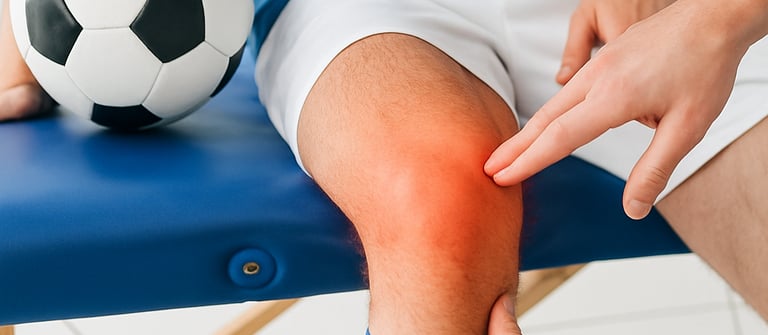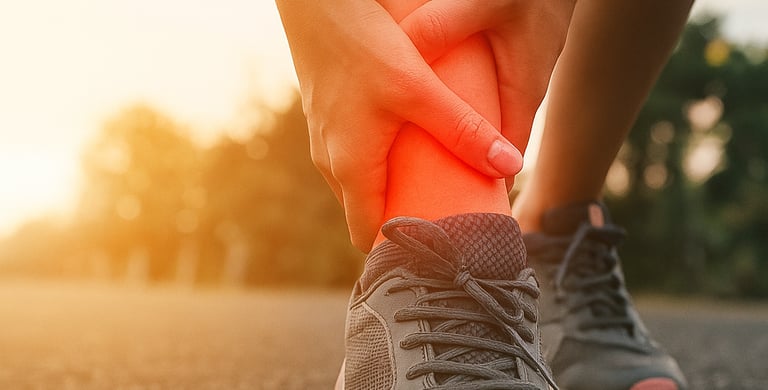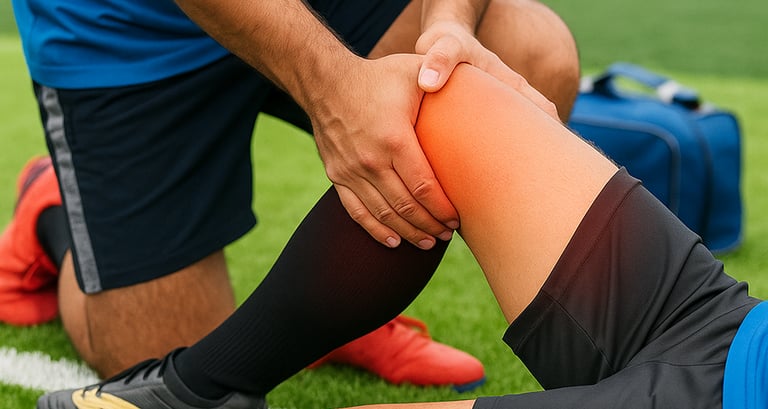Whether you’re a professional athlete, a weekend warrior, or a fitness enthusiast, sports injuries are a common and often unavoidable part of an active lifestyle. While some injuries heal quickly with rest, others require structured physiotherapy to ensure full recovery and prevent long-term issues.
At Myo Physio at Home, we bring expert sports injury rehabilitation to your doorstep in Gurugram and Delhi NCR, helping you bounce back stronger — safely and effectively.
What Are Sports Injuries?
Sports injuries refer to any musculoskeletal damage that occurs during physical activity or athletic performance. These may involve:
Muscles
Ligaments
Tendons
Bones
Joints
They can be acute (sudden onset) or chronic (developing over time due to overuse or poor biomechanics).
Common Types of Sports Injuries
1. Ligament Tears
ACL Tear (knee)
MCL, LCL, PCL Injuries
Ankle Sprains
2. Muscle Strains
Hamstring strain
Calf or quadriceps strain
Groin pull
3.Tendon Injuries
Achilles tendinitis
Tennis elbow (lateral epicondylitis)
Rotator cuff tendinitis
4. Bone Injuries
Stress fractures
Contusions (bruises)
Shin splints
5. Head & Concussion Injuries
Caused by blows to the head, common in contact sports
6. Joint Injuries
Shoulder dislocation
Meniscus tear (knee)
Labral tear (hip or shoulder)
Symptoms to Watch Out For
Sharp or persistent pain during or after activity
Swelling or bruising
Restricted movement or stiffness
Instability or clicking in joints
Pain that worsens with activity
Numbness or tingling (nerve-related injuries)
Ignoring early signs can worsen the condition and delay recovery.


Best Sports Injury Treatment
- in Gurugram & Delhi NCR


Diagnosis: When to Seek Help
An accurate diagnosis is essential for effective recovery. At Myo Physio at Home, we begin with:
✅ Thorough clinical evaluation
✅ Functional movement screening
✅ Pain and posture assessment
✅ Referral for imaging (X-ray, MRI, ultrasound) if needed
This helps identify the root cause and guides your personalized rehab plan.
Treatment Options
Conservative Management (For Most Sports Injuries)
RICE Protocol: Rest, Ice, Compression, Elevation
Anti-inflammatory medication (as prescribed)
Supportive bracing or taping
Guided physiotherapy to restore strength, stability, and range of motion
Surgical Intervention
Some injuries (like complete ligament tears, complex fractures, or cartilage damage) may require surgical repair, followed by intensive post-operative physiotherapy.
Sports Injury Rehabilitation at Home: Myo Physio at Home Approach
Our approach is designed to help you recover safely — where you’re most comfortable: your home.
Phased Recovery Program
Phase 1: Acute Phase
Pain and swelling control
Immobilization if necessary
Gentle mobility exercises
Phase 2: Recovery & Strengthening
Progressive loading of injured structures
Muscle strengthening (core, glutes, lower/upper limbs)
Flexibility and posture correction
Phase 3: Functional & Sport-Specific Training
Agility drills
Balance and proprioception
Sport-specific return-to-play programs
Unique Features of Our Home Rehab Model
Tailored 1-on-1 sessions in your own environment
No need to travel during pain or injury
Close monitoring of progress
Goal-oriented plans — from pain relief to peak performance
We work closely with athletes, coaches, and fitness experts to ensure safe return to activity.


How to Prevent Sports Injuries?
Warm up and cool down properly
Crosstrain to avoid overuse injuries
Use proper gear and footwear
Listen to your body — don’t push through pain
Get biomechanical assessments and training advice
Strengthen supporting muscles (especially core and stabilizers)
FAQs
Q1: Can sports injuries heal without physiotherapy?
A: Minor injuries may improve with rest, but structured physiotherapy ensures complete healing, prevents recurrence, and restores full function.
Q2: How soon should I start physio after a sports injury?
A: Ideally within a few days. Early rehab helps reduce swelling, maintain range, and speeds up recovery.
Q3: Can I train during rehab?
A: Yes, but under professional guidance. We’ll help you modify activities and introduce safe alternatives.
Q4: Do you provide return-to-sport assessments?
A: Absolutely. We evaluate strength, agility, balance, and mental readiness before clearing you to play.
Get in touch
Quick Links
Health
Recovery
myophysio312@gmail.com
+919811527312
+918810530087
© 2025. All rights reserved. - Myo Physio At Home


